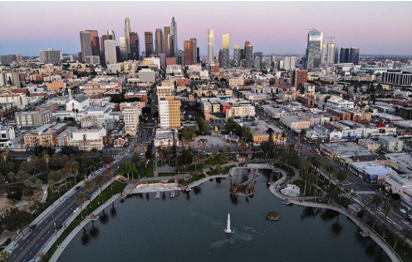Matylda Kaluzinska
Multiple statements, released over the past few months, claim that lockdown has changed the environment rapidly, causing cleaner air and clearer waters. Due to Covid-19, citizens of nearly every country were instructed to stay in lockdown. This resulted in fewer workers driving and fewer people using public transport. Because of this fewer greenhouse gases were produced, making the air more breathable.

As the isolation continues, the skies clear up in Los Angeles and Beijing, the mountains are noticeable in Punjab and Nairobi, and breathable air is now heeded in Asia, Europe and North America. As the air took a turn for the better, the waters in Venice improved, leading to the return of aerial and aquatic animals.
Many researchers have concluded that Covid-19 was/is linked to polluted air. It is said that the spread of Covid went much faster due to number of countries having air filled with smog and fumes.
“The water now looks clearer because there is less traffic on the canals, allowing the sediment to stay at the bottom,” this an observation from a spokesperson of Venice, who told CNN on 8th of March.
As reported at edie.net, Prof Jonathan Grigg, from Queen Mary University of London, said: “Clearly, we urgently need more studies, since locally generated particle pollution will bounce back once the lockdown is eased.” Multiple studies made by students and scientists have shown that, in some cases, polluted air is linked with Covid-19.
Once Lockdown is over, people will go back to work or school using vehicles. Yet our new methods of working and fear of exposure may encouraged less travel in the future. Will the smoke and fumes return to the same extent? Is there really a good side to Covid?


